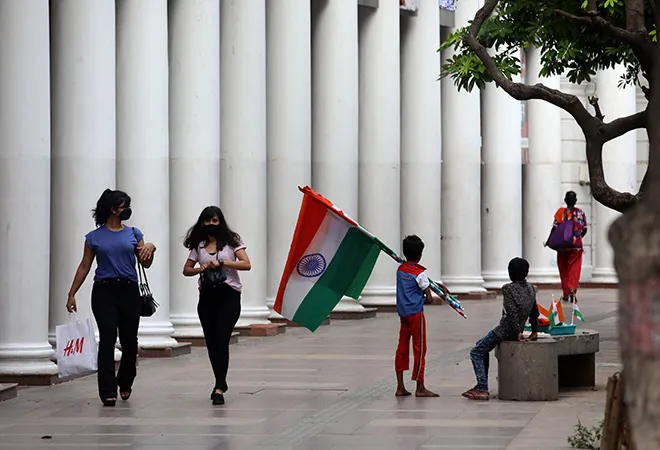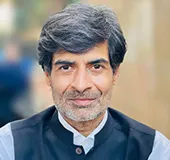The COVID-19 vaccines are coming. And along with this sanjivani comes a new age of geopolitics. The vaccines are varied, with different pricing points and affordability. Nations have secured their vaccine supplies from countries and companies they trust, often by forging new alliances. The scepticism over the vaccines from China and Russia shows that trust is the operating word in the post-pandemic era — and it is not limited to the choice of vaccines.
As we enter the third decade of the 21st century, a multipolar world awaits us. The US and China — rivals for the top slot till the pandemic hit the world — will now have to contend with traditional and rising powers like the UK, France, India and Brazil. Each country will engage with others selectively, not in every arena. We will see the rise of a New World Order driven by national interest, reliability of partners, and of course, economic factors. India has to use a “Gated Globalisation” framework to negotiate this change.
The security landscape will continue to drive partnerships, but these will no longer be omnibus alliances. India is locked in a confrontation with China in the Himalayas. The US and its traditional allies are ramping up their presence in the Western Pacific. A new Great Game is underway in the Indo-Pacific where the Quad is emerging. The Middle East is in a deep churn as Israel and Arabs discover Abrahamic commonalities. Europe is caught in a struggle to retain its values amid the diversity it has acquired over the years.
The Gated Globalisation framework requires that India should protect its interests in these unsettled times. Strong fences are necessary, but so is the creation of new partnerships (like the Quad) based on trust and common interests. Gated Globalisation has no place for parlour games like “non-alignment”; it will test the tensile strength of “strategic autonomy”. The need for a new coalition was felt after Doklam and has become a necessity post-Ladakh: India needs friends in deed.
The Gated Globalisation framework requires that India should protect its interests in these unsettled times. Strong fences are necessary, but so is the creation of new partnerships (like the Quad) based on trust and common interests
Beyond security, like everybody else, India has to make partnership choices on trade, capital flows and the movement of labour. The WTO’s multilateral trading arrangements have frayed beyond repair. Whether it is RCEP in the Indo-Pacific, the new version of NAFTA called USMCA, or the reconfigured EU, countries will have to decide whether they belong inside these gated trading arrangements. India has chosen to stay out of RCEP and the UK has left the EU.
By imposing restrictions on trade with China, India faces restrictions on capital flows. But this does not preclude enhanced capital flows from new partners. To prevent inflow of illicit funds, India has barred capital from poorly-regulated jurisdictions. India’s capital account for investment is largely open while its current account is carefully managed. Similarly, while restricting debt flows, India is open for equity flows from friendly countries. Other nations have similar policies. By managing capital flows in this manner, countries have enabled tighter financial relationships within their gated communities while shutting out those who are inimical to their interests.
India’s global diaspora is now over 30 million and sends more through remittances ($80 billion per year) than foreign capital inflows. The pandemic-enforced work-from-home may see the creation of new pools of skilled workers, living in virtual gated communities, further enhancing income from jobs physically located elsewhere. Moreover, the Indian diaspora is now increasingly impacting policy in countries like the US, UK and Australia where it has contributed politicians and technocrats, innovators and influencers, billionaires and cricket captains.
The pandemic-enforced work-from-home may see the creation of new pools of skilled workers, living in virtual gated communities, further enhancing income from jobs physically located elsewhere
Finally, technology flows and standards will also define gated communities. The internet is already split between China and everyone else. The Great Firewall of China has shut out many of the big tech players like Google, Facebook and Netflix. Instead, China has its Baidu, Alibaba and Tencent. With the advent of 5G technology, this split will get deeper and wider over issues of trust and integrity.
The EU-crafted General Data Protection Regulation (GDPR) is an excellent example of Gated Globalisation. The EU has set the terms of engagement; those who do not comply will be kept out. The Indian law on data protection that is currently being discussed follows a similar sovereign route. However, it remains to be seen whether these norms can checkmate China’s massive digital surveillance apparatus.
There are other emerging arenas that will likely become the focus of big power competition. China has moved in all possible directions to develop its global strategies. It has linked its national security interests with its Belt-and-Road Initiative and its debt programmes. It is offering a package deal of 5G technology with new telecom networks. China has learnt well from the US.
Amid these rapidly changing post-pandemic realities, India has to be swift in identifying partners whom it can trust and who will help protect and further its national interests. Ambiguity, lethargy and posturing will not do.
This commentary originally appeared in The Indian Express.
The views expressed above belong to the author(s). ORF research and analyses now available on Telegram! Click here to access our curated content — blogs, longforms and interviews.




 PREV
PREV


